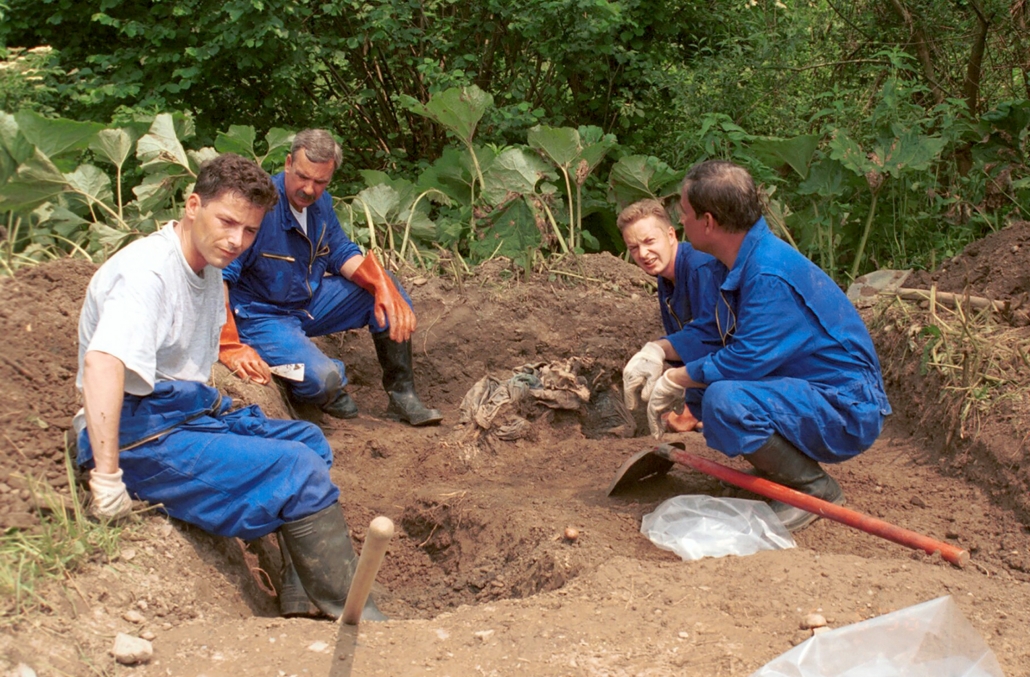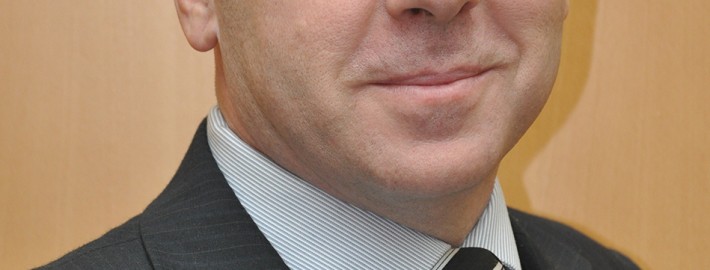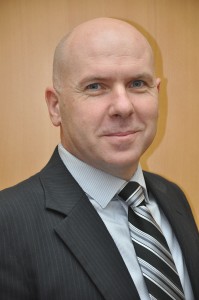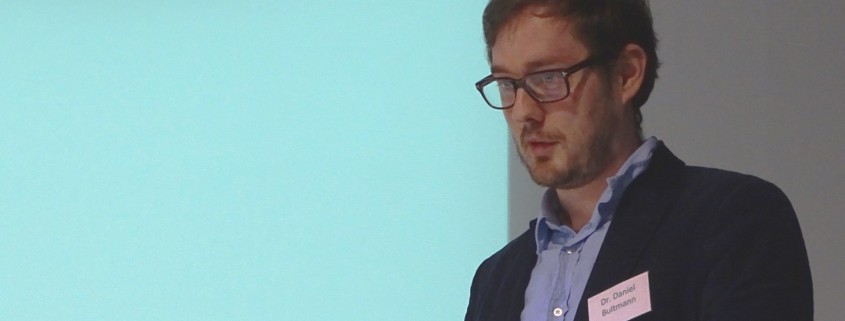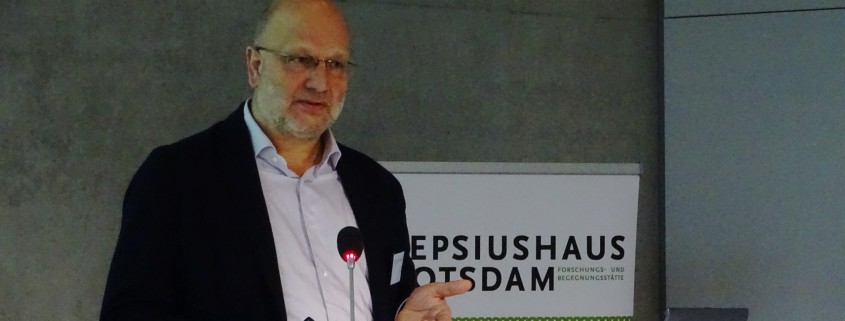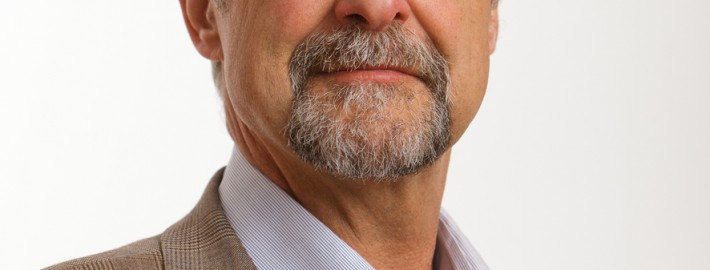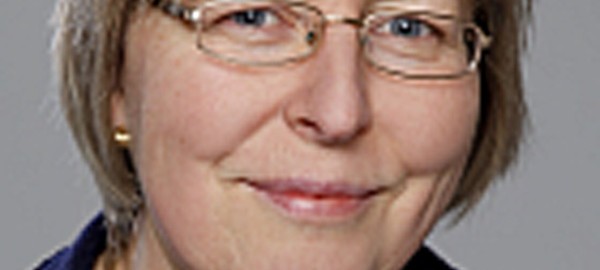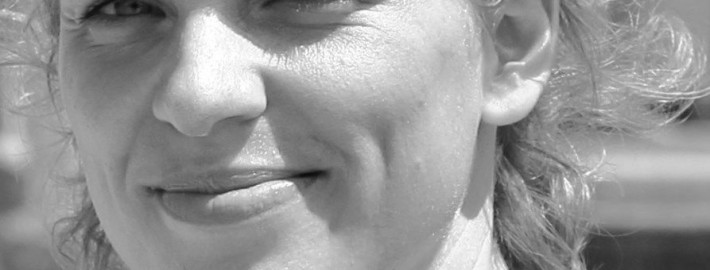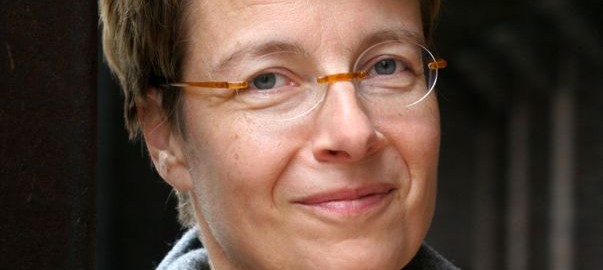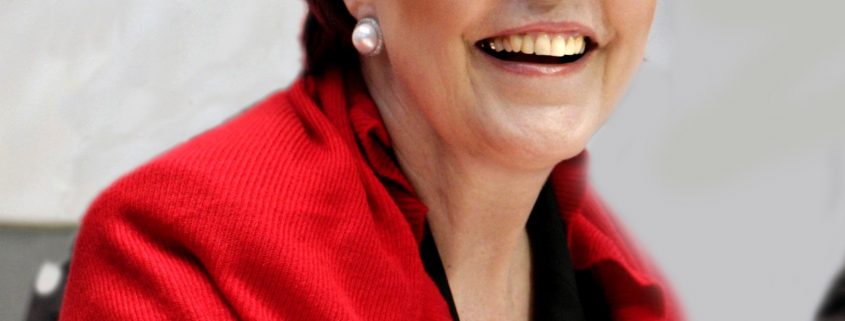„Denying is becoming Part of a Folklore“ – Interview with Srebrenica-Survivor and author Nedžad Avdić
Emma Neuber, Estella Müller & Miriam Schirmer
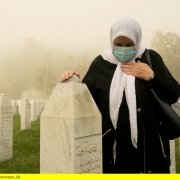
Dieses englischsprachige Interview ist Teil einer Interviewreihe und Filmbesprechung von Genocide Alert e.V. zur zweiteiligen Dokumentarreihe „Krieg vor Gericht“, die im Sommer 2021 in der ARD ausgestrahlt wurde. Die Dokumentation gibt detaillierten Einblick in die juristische Aufarbeitung der während der Jugoslawienkriege von 1991 bis 2001 verübten Massenverbrechen. Dabei werden einerseits historische Ereignisse rund um das Jugoslawientribunal detailgenau rekonstruiert. Andererseits geben Berichte von Zeitzeug:innen einen persönlichen Einblick in die geschehenen Massenverbrechen und den Strafprozess. Im nachfolgenden Interview schildert der Überlebende des Völkermordes in Srebrenica Nedžad Avdić was ihn antreibt und wie er auf die bisherige Aufarbeitung der damaligen Massenverbrechen blickt.
„Denying is becoming Part of a Folklore“ – Interview with Srebrenica-Survivor and author Nedžad Avdić
Nedžad Avdić was born in 1978 in a village near Srebrenica into a family of Bosniaks. When he was only 17 years old, he and his male relatives were taken to a killing field during the genocide in Srebrenica. Nedžad was shot three times by Serb soldiers. However, with the help of another survivor he managed to escape and survived the genocide. When the ICTY was established in 1993 he decided to testify as a witness in two cases. Today, Nedžad lives in Potočari, six kilometres away from Srebenica, as one of the few survivors who returned to Srebrenica. Recently, Nedžad not only participated in the documentary series “Krieg vor Gericht – Die Jugoslawien-Prozesse”, but also published the book “The Hague Witness”, in which he tells his story.
Genocide Alert: You do a lot of interviews and talk about your personal experiences publicly, for example in the documentary series on the ICTY. What is your motivation for that? What drives you?
Nedžad Avdić: First of all, the most important motive is the truth. However, to fully understand this, you need to understand the circumstances in Bosnia and the region and know some crucial facts. I never really escaped from the hell of Srebrenica, I did not come from hell to some kind of paradise somewhere in Bosnia where I could keep living peacefully. First, I fought for my life, then I fought for justice as a witness at the ICTY and the Bosnian court as well. And today I fight against those who deny the truth and the international judgements, and all the judgements related to the genocide and the war crimes here in Bosnia.
All this time, since July 1995, what was committed in Srebrenica has been brutally denied. Even some foreign media immediately after the war went with sarcastic headlines, such as “Genocide without corpses?”, alluding to the non-existence of mass graves.
Today, 26 years later, despite very precise evidence and despite numerous verdicts, the denial continues even more aggressively. We are dealing with denial, revisionism, reduction and minimization of crimes, justification of crimes, and glorification of crimes and war criminals. In fact, we have a development of a culture of denial. And denying is becoming part of a folklore here in Bosnia, it is a trend.
All these things drive me. So, do we need a stronger motivation than this? Can we allow lies, mythomania, and propaganda to prevail over the truth? That is my answer to that question.
Genocide Alert: From August 2021 on, the denial of the genocide in Bosnia is punishable by up to three years’ imprisonment. What do you think about this legislation, especially as you told us that denial is a trend in Bosnia right now?
NA: Much time ago, we needed that. Maybe now it is too late, but from my point of view it is better now than never. But some things cannot be solved by law. The main problem, in my opinion, lies in the Serbian population and also here in Bosnia, especially with the people who deny the genocide and the international judgments. They have a lot of support in Serbia and that is the main problem, because many war criminals – during the war, after the war, and today – find shelter and protection in Serbia or in Serbian entities[1] here in Bosnia. They are protected by official Serbian politics, by Serbian media and institutions. And that is the problem because Serb politicians were never confronted with the bloody past. And that law can maybe help, but they have to be confronted in their society. I hope that catharsis will come one day but for now, nothing happened.
Genocide Alert: How do you perceive the situation in the country today? To what extent do you still feel the effects of the war and the genocide in the society today?
Nedžad Avdić: I returned to Srebrenica around 15 years ago, in 2007. I feel the consequences of the war everywhere, not only physically but in every sense. In fact, the genocide has never stopped. A small community of returnees still struggles against elimination from all segments of life. Of course, the situation is incomparably better than 20 years ago, but we have a frozen conflict. And the denial of the genocide and the missing confrontation cause problems in everyday life, specifically here in Srebrenica, in eastern Bosnia where I live now. We have problems, like the denial of verdicts, the complete deprivation of the right to learn the Bosnian language in schools for our children, in fact the denial of our identity, the dehumanization of Bosniaks in public speech, on a daily basis in the media. For example, very rarely the term “Bosniaks” is being used. The terms “Muslims”, “Muslim soldiers”, “Muslim children”, etc. are preferred instead – but that is not fair and not correct. In that way they want to humiliate us and show us as dirty Muslims. And in fact, such vocabulary was used during the war and such vocabulary brought us the genocide and prepared the Serb population for the extermination of their neighbours.
Genocide Alert: Perpetrator voices are featured next to those of survivors in the documentary you took part in. How important do you think is it to include both perspectives in processes of dealing with the genocide?
Nedžad Avdić: The perpetrator who is featured in the documentary was on the Bosnian side and seemingly he talks about it openly.
In my experience, most of the Serb perpetrators just deny everything that they’ve committed. They do not regret what they did and they do not talk about it except when they deny it. The reason for that is that they find refuge and protection in Serbia and the Republika Srpska. They are protected by Serbian official policy, by Serbian media and institutions etc.
But I have to be honest: I do not like to be together with the perpetrators, the deniers, even in the film. But if someone wants to bring both perspectives together and thinks it is a good idea to have perpetrators and survivors in a documentary, I am happy to take part. But, I will always say that the perpetrators showed what they were able to show when they were committing crimes, and I do not see what they could offer more. We are talking about thousands of destroyed human lives and destinies, and we cannot put perpetrators and survivors on the same level. We did not fight gun to gun, people who were killed with me, were unarmed, defenceless and innocent civilians. Because of that, I do not like to be represented on the same level.
Genocide Alert: Do you feel that in Bosnia today adequate space is given to voices of survivors and the families of victims?
Nedžad Avdić: Definitely not enough space is given to the victims. We were not given any space voluntarily, because someone thought we should be given a platform to talk about our suffering. We had to fight for that space ourselves. We fought for everything, and we still fight.
As for the perpetrators of crimes, in Bosnia, or more specifically in Srebrenica, no space exists in which war criminals were ever given the chance to express any remorse. Also, since Serb officials deny the genocide, they have never actively claimed any such space to confront and process the past.
Genocide Alert: To what extent was the ICTY able to contribute to the reappraisal of the genocide and mass atrocities committed and the reconciliation process in general? In your opinion, what were the most significant outcomes and most important shortcomings of the ICTY?
Nedžad Avdić: In fact, we can ask ourselves the question: What would the situation in Bosnia be like today if we did not have the ICTY? We can only guess. I believe it would be incomparably worse, that’s for sure. Imagine having all those major criminals at large today? I can’t imagine that and I don’t want to imagine that. We, the rare witnesses, I don’t know if we would be alive in such circumstances. If we didn’t have the ICTY, today the war criminals would probably walk around as respectable citizens. That’s the good side of the tribunal.
Of course, the ICTY has many shortcomings: The first is that justice came too late, and many victims and survivors did not receive it. If we had had one quick trial, like in Nuremberg, today the situation in the country would be completely different. I must admit that my expectations were much greater. But as I said, many war criminals were sent to the ICTY very late. Why did that happen? It happened because they found shelter in Serbia. And Serbia waited until the last moment to send them to the ICTY. And that is a huge problem because the international community didn’t put huge pressure on Serbia to send them to the ICTY immediately after the war.
Genocide Alert: You also decided to engage personally in the work of the ICTY by testifying before court. Why did you decide to testify before the court? How was this experience for you?
Nedžad Avdić: First of all, after such a tragedy, the ICTY was the only hope at the time and the only light for us survivors. What I could do, as a survivor, was to testify how such a crime could be represented to the tribunal and later to a broader public.
In the end, it was my moral obligation and the only thing I could do for my killed father, my killed uncles, for my schoolmates, for my friends, for my relatives and neighbours.
My testimonies were difficult, very painful and exhausting because I had to go through the horror again.
For the first time I was faced with so many people who were listening about the horror in details from the first hand. It was pretty stressful for me when I found myself there in the courtroom in the first case for Srebrenica. It was the case against General Radislav Krstić who was convicted for genocide and sentenced to 35 years imprisonment. It was very stressful for me to be in the courtroom because it was the first time for me to talk about what had happened. And so many prosecutors, so many personnel, and the jury, and the lawyers who defended the war criminal were there. It was very difficult for me to talk about that, I was experiencing real horror again. And I remember that I was testifying there, crying all the time. And when they asked me after the trial to come again in the next case, I said: “It is my first and my last case to come to the tribunal.” But later when they called me again I accepted again because, as I said, it was my obligation and the only thing I could do.
Genocide Alert: Some believe that the ICTY has led to justice. In your personal opinion, did it do so?
Nedžad Avdić: The ICTY has done part of the job. We have to say that the court was quite objective and did not take sides, but as a survivor I can tell you that justice was at best partially served. Individuals from the top were convicted, but the regime that was established on those crimes still exists, devastation and ethnic cleansing remained, results of the war are still visible everywhere. Srebrenica today is in the hands of those who deny genocide and glorify war criminals. For example, our local mayor denies the genocide. It is important to ask ourselves if such people could have come to power if they had not committed the genocide. The mayor of Srebrenica is a perfect example: after the genocide, probably because of the genocide, he had much more possibilities to take power. Is that justice?
But, I want to express one thing: So, even though great injustice was inflicted, genocide was committed, we as an ethnic group were completely expelled, when all that is taken into account, I can say that the judgments are important in the end, because they bring us the closest to the truth. And just because of that I can say that I feel a certain relief, a certain amount of satisfaction. Because in that way, the ICTY discovered the truth and presented it to public – that is important for me. For me, it doesn’t mean much that some war criminals are in prison, because their imprisonment cannot return my father, my uncles, my relatives. For me the truth is more important than anything else.
Genocide Alert: From the perspective of a survivor: What are the most important learnings for future genocide tribunals? Are there any?
Nedžad Avdić: In Srebrenica and after that when I was loaded on a truck I could only see brutality and bestiality. But following the work of the court, I could see a lot of evidence, a lot of documents, a criminal structure, joint criminal ventures, strategical goals which actually were genocidal intentions. I couldn’t know such things here in Srebrenica, as seventeen-year-old boys we were in total isolation. I found out much about the war, destruction and the enormous scale of the crime from the trials. And maybe the most important thing that I learned from the ICTY and all that, but from the terrain as well: I realized that all conventions were just plain definitions on paper. In reality, they meant nothing. Each one of them was violated. I realized in practice, on the terrain and during the many trials, that we had and have many conventions, but they are not respected at all.
We, as human beings, especially the politicians, should react much faster and much earlier. Before the possibility of a genocide arises. Judgements and tribunals are only reactions that are always too late. If we had stopped the war and saved only one live, it would have been much better than any tribunal later established.
[1] Republika Srpska
GA Interviewreihe „Krieg vor Gericht“
Anlässlich der Veröffentlichung der Dokumentarreihe hat Genocide Alert e.V. zwei Interviews mit Projektbeteiligten geführt: Im ersten Interview mit Genocide Alert gibt Lucio Mollica, der der Regisseur von „Krieg vor Gericht“, einen Einblick in die Entstehung und Hintergründe der Dokumentarreihe.
Bildrechte:
RUNDFUNK BERLIN-BRANDENBURG
Krieg vor Gericht – Die Jugoslawien-Prozesse
Das Grauen des Balkankrieges: belagerte Städte, vertriebene Familien, über 130.000 Tote. Der Internationalen Strafgerichtshof für das ehemalige Jugoslawien sollte die Kriegsverbrechen ahnden. Nie zuvor hat ein internationales Gericht Kriegsverbrecher aller Seiten verfolgt – darunter Mladić, Karadžić und Milošević. Der Film erzählt von Opfern, Tätern und Anklägern. – Der ehemalige bosnisch-serbische Politiker Radovan Karadžić vor Gericht am 24. März 2016 in Den Haag.
Titelbild: © Nedžad Avdić
Beitragsbild: © rbb/LOOKSfilm, honorarfrei – Verwendung gemäß der AGB im engen inhaltlichen, redaktionellen Zusammenhang mit genannter rbb-Sendung bei Nennung „Bild: rbb/LOOKSfilm“ (S2+). rbb Presse & Information, Masurenallee 8-14, 14057 Berlin, Tel: 030/97 99 3-12118, pressefoto@rbb-online.de
Beitragsbild: © Nedžad Avdić
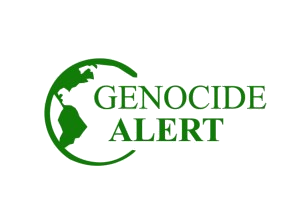
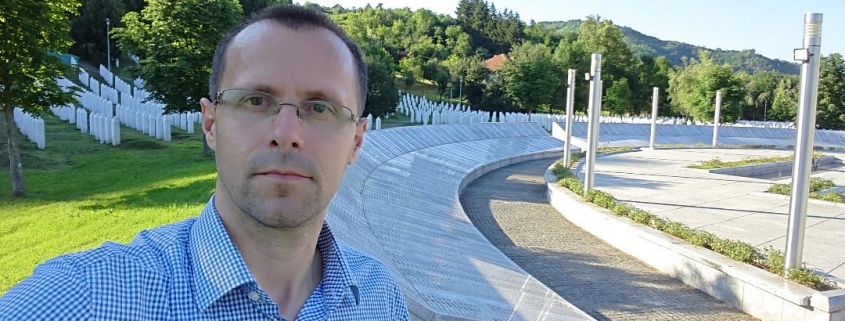 Photo by Nedžad Avdić
Photo by Nedžad Avdić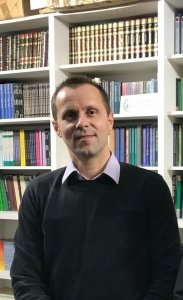
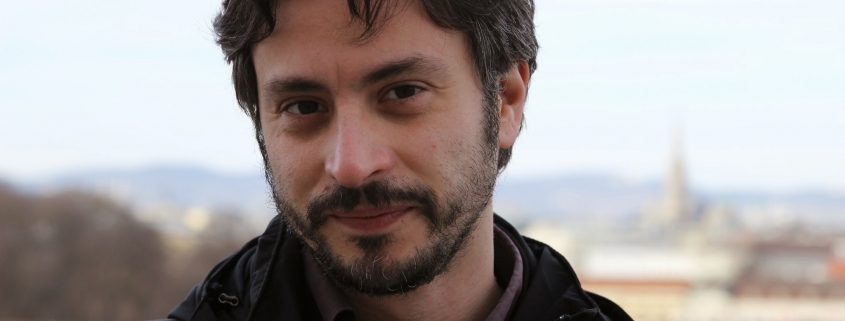 Lucio-Mollica
Lucio-Mollica